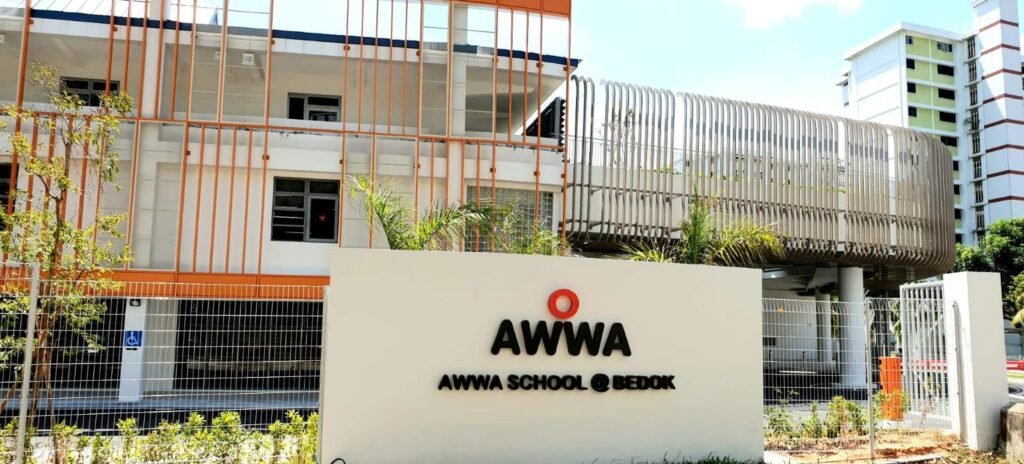Special need school in Singapore are rapidly changing as a result of a wealth of options available to both local and international students, from special education preschools and early intervention centers to fully supported mainstream schools with special needs education. Children with moderate-to-severe special educational needs are served by Singapore’s special education (SPED) schools. Students with a range of special educational needs are served by different SPED schools.
Twelve social service organizations, twenty-two government-funded SPED schools, and a large number of private and international schools provide children with inclusive education, support, and early intervention programs. Are you curious about the location of these special schools in Singapore and whether the curriculum will meet your child’s educational requirements?
For all the details about the special needs school in Singapore, continue reading.
Table of Contents
What are Special Need School in Singapore?
Special need school in Singapore provide a range of special needs for kids, meeting their various conditions and learning requirements. There are private schools, international schools with learning support sections, and government-funded Special Education (SPED) schools.
Types of Special Need Schools in Singapore?
Government-funded special needs school in Singapore
These schools serve Singaporean citizens and permanent residents and are funded by the Ministry of Education (MOE). Placement is often determined by the child’s age, household address, and primary diagnosed condition.
In Singapore, a number of government-funded special needs schools cater to various age groups and primary ailments. For example, Pathlight School, St. Andrew’s Mission School, and Anglo-Chinese School (Academy) follow the National Curriculum for children aged 7 to 18 and serve students with autism spectrum disorder (ASD) who do not have intellectual disabilities. While MINDS Schools concentrate on moderate to severe intellectual disabilities for pupils aged 4 to 18, APSN Schools serve adolescents with mild intellectual disabilities aged 6 to 19.
Rainbow Center serves children aged 7 to 18 who have multiple disabilities and ASD. At the elementary level, kids with hearing and vision impairments are served by Canossian School and Singapore School for the Visually Handicapped, respectively. ASD and learning challenges are among the issues that other institutions, such as AWWA School, Metta School, Grace Orchard School, and St. Andrew’s Autism School, address.
Children entering Primary 1 or Junior 1 can apply to these schools via the MOE website, but transfers from mainstream schools need to be facilitated by the principal of the present school.
International and Private Schools with Educational Assistance
Alternative possibilities, particularly for international students, are offered by private and international schools. Integrated International School (IIS), which provides specialized facilities and a customized curriculum, is one example. Diverse learning options are offered by Dover Court International School, including specialized assistance for students with particular requirements.
Saint Clare School is a specialized private school with tailored education programs with a focus on life skills and rehabilitation, while Winstedt School is renowned for its adaptable learning rooms and individual support.
How can you determine if your child requires special education?
Determining whether your child requires extra assistance with their social and academic requirements is the first step in helping them. For example, some kids may struggle more than their classmates to read, communicate, make friends, or even study in school.
If your child is younger than seven years old, you can consult a professional for a professional evaluation, such as a doctor, psychologist, or therapist. This will assist you in comprehending your child’s overall profile, which encompasses both their learning strengths and challenges, and in deciding which special needs school in Singapore would be the best fit.
During the most crucial period of your child’s development, this early intervention can help provide them the support they need. In addition to improving social, emotional, physical, and cognitive abilities, this can aid in overcoming developmental deficiencies.
Additionally, it can significantly reduce the emergence of secondary disorders, such as mental health problems. You can contact your child’s form teacher to speak with MOE psychologists if your child is already enrolled in a regular school. Another option is to have your child evaluated by licensed experts in a private clinic.
You should always conduct your research and verify the qualifications of the expert who will be evaluating your child while doing this. They should be qualified and prepared to give you the right diagnosis so you can better understand your child’s needs.
This evaluation will assist you in determining your child’s educational possibilities at any special needs school in Singapore. The experts can point you in the direction of the best programs for your child that are offered in mainstream and/or SPED schools.
Additionally, you can learn about any strategies and interventions that can be used at home to assist your child in developing fundamental life skills. Once you have a good grasp of your child’s needs, you can then have a look at the type of support available.
Related: Best Accredited Online Schools For Social Work
How Should a Special Needs School in Singapore Be Selected?
Choosing a special need school in Singapore for your child can be a difficult decision, even with the help of qualified specialists. To make an informed selection, you need to consider both your child’s educational needs and your options within the school system.
Once you’ve determined which schools meet your unique needs, you can look at the following factors to pick one that’s the best fit for your child.
1. What is the class size?
Special need school in Singapore are urged to provide a comprehensive curriculum that may be tailored to the specific needs of each student. For example, your child will receive a curriculum that is suited to their specific talents, abilities, and weaknesses.
Furthermore, it is important to find a school that allows for smaller class sizes so that professors can provide more intense help to each student.
2. What improved school amenities are available?
Special need school in Singapore are typically outfitted with facilities developed expressly to provide the optimum learning environment for pupils. This comprises sensory integration rooms, hydrotherapy pools, rehabilitation and indoor playrooms, and vocational training facilities.
3. Is the SPED School affiliated with any mainstream institutions?
Many special need school in Singapore collaborate with regular schools to provide more chances for students. This allows your child to interact with others during extracurricular seminars, excursions, and other events.
4. Does the school offer individual education plans?
A tailored curriculum can be the key to helping your child reach their greatest potential. Fortunately, several special need school in Singapore work with parents and other professionals to create an Individual Education Plan (IEP) for your kid and routinely update it to ensure that it remains relevant to your child.
For example, an IEP will include goals for your child to attain that will help them learn to live independently. The curriculum will be designed to help your child develop essential abilities, including social, emotional, and self-control.
5. Other Considerations
Aside from the following factors, you should consider the distance to the chosen special needs school in Singapore from your home, your child’s special hobbies, and the school’s mission and culture. For example, living in the Emerald of Katong condos provides the convenience of being close to great schools, which is a huge advantage.
If you’ve been working with a professional, he or she will propose the best special need school in Singapore for your child’s needs. Before making a final decision, we strongly advise you to visit the school and chat with the school personnel about any questions you may have.
Special Need School in Singapore For your Kids
1. APSN School:

APSN is a Singaporean social service agency with a focus on special education. Currently, APSN operates four special need school in Singapore for children aged 7 to 21: APSN Chaoyang School, APSN Katong School, APSN Tanglin School, and APSN Delta Senior School.
APSN Chaoyang School serves children aged 7 to 12 years old with mild intellectual disabilities. The school provides two programmes: the Integrated Programme (IP) and the ASD Structured Programme. IP is intended for students with MID as well as those with mild and moderate ASD. This program is designed for children with low support needs. The teacher-student ratio is 1:10. ASP is for children with MID and mild ASD who require moderate support. The teacher-student ratio is 1:4.
APSN Katong School welcomes children aged 7 to 16. You can select from three programs: KS Arts, Sensory Integration, and Work Experience. APSN Tanglin School invites boys and girls aged 13 to 16 with MID and ASD to embark on an exciting learning journey together and master one of the numerous educational programmes. Future artists, environmentalists, entrepreneurs, and IT professionals are born here.
From Life abilities Training and Computer Skills Training to numerous Vocational Programs, APSN Delta Senior School invites students aged 17 to 21 to learn, train, and develop essential abilities that will enable them enter the bustling adult world.
All APSN special need school in Singapore provide a wide variety of extracurricular activities in performing arts, sports, visual arts, and other areas.
- Age: 7–21 years old
- Specialization: ASD with intellectual disability, MID.
- Address: APSN Chaoyang School, 10 Ang Mo Kio Street 54, Singapore 569184.
2. Eden School:
Eden School accepts kids on the autism spectrum aged from 7 to 18. Its purpose is to significantly impact the lives of children with special needs through an adapted curriculum, highly dedicated staff, and a friendly environment. Students acquire and practice important skills that will help them become more independent and improve the quality of their life.
Eden School’s students are divided into two groups: junior years (7-12) and senior years (13-18 years old). The Junior Years curriculum focuses on teaching essential foundational abilities. In the Senior Years, children learn to apply core knowledge while also developing occupational abilities.
To make the children’s educational experience even more fascinating and meaningful, the Eden School provides a variety of co-curricular activities such as music, soccer, dance, athletics, visual arts, and many more.
- Age: 7–18 years old
- Specialty: ASD with intellectual disability.
- Address: Eden School is located at 101 Bukit Batok West Avenue 3, Singapore 659168, and Campus 2 at 1 Bukit Batok West Avenue 2, Singapore 659203.
3. AWWA School:

AWWA School provides high-quality special education to students aged 7 to 18 with ASD, intellectual impairment, and MD. It operates two special need school in Singapore; AWWA School @ Bedok for children with autism and AWWA School @ Napiri for children with autism and various impairments.
The school’s goal is to help students reach their full potential and live better lives. It focuses on providing children with all of the knowledge and skills they need to feel comfortable and live independently. The academic departments at the school include art, ICT, language, numeracy, life skills, PE, and others.
The school’s Work Exposure and Work Experience Programme helps students to gain experience in a variety of industries in order to identify the greatest job match for them. Swimming, Drama, Art Club, Science Club, and a wide range of other classes are available.
- Age: 7–18 years old
- Specialization: ASD with intellectual disability; MD
- Address: AWWA School @ Napiri: 11 Lorong Napiri, Singapore 547532; AWWA School @ Bedok: 50 Bedok Reservoir Crescent, Singapore 479225.
Related: The Best Therapeutic Boarding Schools In America
4. Lighthouse School:
Lighthouse School serves kids ages 7 to 18 who have hearing loss (HL) and visual impairment (VI). The school values iSHINE—Sincerity, Humility, Integrity, Never Give Up, and Empathy—and guarantees a loving, supportive, and stimulating environment for each kid.
The National Curriculum Program for Primary/Junior students and the Customized Curriculum Program for Junior, Middle, and Upper students are among the academic programs offered by the institution. Students receive special assistance at every learning level.
Additionally, the Swimming Program, Student Leadership Program, and CCA Program are offered by the Lighthouse School to assist children in discovering and developing their interests and abilities, learning new skills, and interacting with others. Children’s educational experiences will be enhanced by school camps, games days, horseback riding, learning journeys, and other events.
- Age: 7 to 18
- Specialization: Impaired senses
- Address: Singapore 298106; 51 Toa Payoh Rise
5. MINDS School:
MINDS has four special need school in Singapore that provide a comprehensive curriculum that integrates academic disciplines and independent living skills. Children with ASD, intellectual disability, and MSID between the ages of 7 and 18 are given hands-on, experiential learning opportunities that help them gain the information and skills they need to confidently transition into adulthood.
The Junior Program (7–12 years old), Senior Program (13–18 years old), and Special Program (7–18 years old) are all offered by MINDS Schools. The School-2-Work Program helps students transition from school to the job.
Autism-focused classrooms, numerous training rooms, top-notch sports facilities, physiotherapy rooms, playrooms, well-equipped outdoor areas, and more are all features of MINDS Schools. The Gardening Club, Art & Craft Club, Scouts, Science & Technology Club, Sports Club, and more are examples of extracurricular activities.
- Age: 7 to 18
- Specialization: ASD with intellectual disability; MSID
- Address: MINDS Towner Gardens School, 1B Lengkong Lima, Singapore 417557
6. Fernvale Gardens School:

The mission of Fernvale Gardens School can be summed up as S.M.I.L.E. (Strength of character, Mutual Respect and Understanding, Integrity, Lifelong Learning, Excellence).
Three programs are available at the school: a Junior program for kids ages 7 to 12, a Special program for kids ages 7 to 18, and a Senior program for kids ages 13 to 18.
The curriculum’s main goal is to offer learning opportunities that are thoughtfully created to foster the development of vital life skills. With a personalized plan, the educational system also seeks to develop each child’s unique skills and passions.
- Age: 7 to 18
- Specialization: Moderate to severe intellectual disability and Autism spectrum disorder
- Address: 7 Fernvale Road, Singapore 797635
7. Rainbow Centre Schools:
The Rainbow Centre Margaret Drive School, Rainbow Centre Yishun Park School, and Rainbow Centre Admiral Hill School make up the Rainbow Centre Schools. The final one focuses only on autism spectrum disorder, whereas the first two treat many disabilities and ASD.
In addition to a variety of junior, middle, and senior programs, all schools incorporate therapeutic services into their core curricula. Additionally, language and communication, social and emotional learning, and physical development are emphasized.
Rainbow schools are also renowned for providing extra services, including family life services, where social workers train people to support children with impairments, and a specific student care center for after-school and before-school care. Additionally, there is a family empowerment program that equips parents and other caregivers with the information and abilities they need to properly handle the various needs of their children.
- Age: 7 to 18
- Specialization: Multiple disabilities and Autism spectrum disorder
- Address: Rainbow Centre Margaret Drive School, 501 Margaret Drive, Singapore 149306
8. Pathlight School:
In contrast to other special need school in Singapore, Pathlight is an autism-based school system. There are no base classrooms at these establishments. Rather, the children attend classes at the Satellite Partnership Schools taught by Pathlight teachers.
This allows children to participate in some school activities and engage with mainstream students at recess. Additionally, this creates space for students who are prepared to enroll in regular sessions for specific disciplines. In addition to enabling students to apply what they learn in practical situations, this deliberate integration raises awareness of the need to create a society that is more inclusive.
- Age: 7 to 18
- Specialization: Autism Spectrum Disorder
- Address: Pathlight School 1, 5 Ang Mo Kio Ave 10, Singapore 569739
9. Cerebral Palsy Alliance Singapore School:
Children at Cerebral Palsy Alliance Singapore School a top special need school in Singapore, are inspired to live meaningfully, study continuously, and work productively. In order to do this, students acquire information and abilities in a variety of areas, including social-emotional, academic (science, literacy, and numeracy), daily living, vocational, physical education, and sports.
Children with MD ages 7 to 18 are served at Cerebral Palsy Alliance Singapore School. There are two levels of students: Junior Level (ages 7 to 12) and Senior Level (ages 13 to 18). There are two schools to select from: East and West. CPASS provides the following programs: High Support Program, Functional Program, and Academic Program (available only at CPASS East).
In order to maximize the child’s growth and development, the school also guarantees a transdisciplinary approach, in which the SPED teacher, physiotherapist, occupational therapist, and other professionals collaborate with parents or caregivers.
- Age: 7 to 18
- Specialty: MD
- Address: Cerebral Palsy Alliance Singapore School (East): 65 Pasir Ris Drive 1, Singapore 519529 and Cerebral Palsy Alliance Singapore School (West): 6A Jurong West Street 52, Singapore 649297.
10. Woodlands Gardens School:
Woodlands Garden School is a special need school in Singapore, renowned for creating a variety of programs for students between the ages of 7 and 18. These classes provide assistance to parents and guardians of students with special needs as well. For example, fathers are encouraged to foster their children’s reading habits at home through the PaPa Reading initiative, which was introduced in 2016.
Extended Vocational Training, the Immersion Program, the MaMa Program for mastering mathematics, Kopi Connect to assist with food preparation and serving, and Green Movement are among other noteworthy initiatives.
- Age: 7 to 18
- Specialty: Moderate to severe intellectual disability and Autism Spectrum Disorder
- Address: 30 Woodlands Ring Road, #01-01, Singapore 737883.
FAQ’s
How do I pick between a government-funded special education school and a private institution?
The most important issues are your child’s individual demands, your residency status, and your finances. Government-funded special need school in Singapore are largely for Singapore citizens and permanent residents with moderate to severe special educational needs, and the fees are heavily subsidized.
What is the process for enrolling my child in a government-funded special education school?
Admission usually requires a formal diagnosis of your child’s condition. Children entering Primary 1/Junior 1 in any special need school in Singapore can apply directly through the Ministry of Education’s (MOE) website. For transfers from a normal school, the application is usually handled by your child’s existing principal. Placement is frequently chosen by the child’s primary diagnosed disease, age, and home address due to catchment area considerations.
What is the average tuition cost for special needs education in Singapore?
The costs differ significantly between government and private special need school in Singapore. Monthly tuition for Singaporeans attending a government-funded special needs school in Singapore ranges from S$60 to S$250. Lower-income families might benefit from various financial support programs. Annual tuition prices for private and international institutions are significantly higher, ranging from S$20,000 to more than S$50,000, excluding application, registration, and prospective therapeutic services.
Conclusion
Joining a school or transferring to a new special need school in Singapore can be a difficult and stressful experience for your child. If your child has special needs, he or she may require more support and encouragement from you.
It is strongly advised that you become acquainted with the school environment and teachers so that you may best assist your child. Maintain a positive attitude, encourage excitement, and ensure that your child feels free to express their worries.

